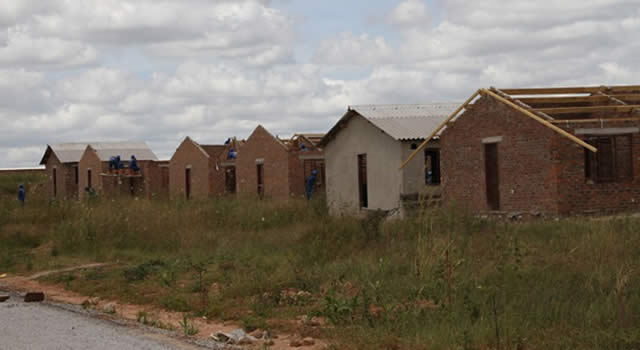EDITORIAL COMMENT: Innovation key to housing delivery

Housing is a basic human right, and it is time Government, local authorities and individuals came up with strategies that ensure everyone has a decent roof over their heads.
We have noticed that since the demise of housing cooperatives in 2016, very few alternatives have been offered to afford everyone an opportunity to own a house.
The Urban Development Corporation took over the servicing and developing of land for residential accommodation, but it has been limited in its housing delivery system. Housing cooperatives were not efficient either.
Many of their leaders appeared at the courts, accused of abusing contributions by members. What Zimbabweans need at the moment is to adopt a culture of saving funds, specifically targeted at buying a residential stand, and eventually building a house.
We note with concern that this culture of saving is lacking, with very few bothering to put funds aside for the purposes of acquiring their own accommodation. There are more than 500 000 people on the Harare City Council’s housing waiting list alone, with many of them having spent years stuck on it.
The reason is that many of them are failing to raise enough to acquire residential stands. This is why a programme launched by the Zimbabwe Amalgamated Housing Association (ZAHA) last week to encourage people to save for housing is a commendable initiative.
The programme is dubbed: “My dollar my stand, my dollar my house”. Under the programme, people are encouraged to open fixed accounts with financial institutions that will partner councils and ZAHA in the acquisition and servicing of residential stands.
The prospective homeowners will be in control of their funds, unlike in cooperatives where the custodian of the funds is ceded to leaders who are prone to abuse the money. In the ZAHA project, an individual opens a fixed bank account and deposits funds from time to time, no matter how little.
The person will be in total control of the fixed account and no one will be able to withdraw the money. When the combined funds deposited by the prospective homeowners become substantial, ZAHA will then approach councils seeking land.
When the land is available, the contributors will use the financial muscle from their pooled resources to enter into partnerships with banks for servicing of the residential stands. A pilot project using the same concept has been successfully implemented by ZAHA at Galloway in Norton.
The housing association partnered with the now defunct Allied Bank in the opening of fixed bank accounts by its members. At least 3 000 people heeded the call for such savings, and they are now building houses on stands as big as 2 000 square metres.
The stands are now serviced, with roads and running water, while only a smaller section is yet to have electricity connected. The organisation could have done more if at least $1,5 million of its members’ funds were not locked in Allied Bank.
One of the reasons why there was a rise in land barons in recent years was because local authorities did not have funds to service stands. They ended up parcelling out land to people of questionable intentions in their bid to provide accommodation to residents.
Yet councils should be stakeholders in housing projects to safeguard the interests of their residents.
A partnership of banks, genuine housing entities and councils, coupled with a savings culture among Zimbabweans, will ensure the housing backlog in various cities is reduced, and that many deserving people get decent accommodation.










Comments